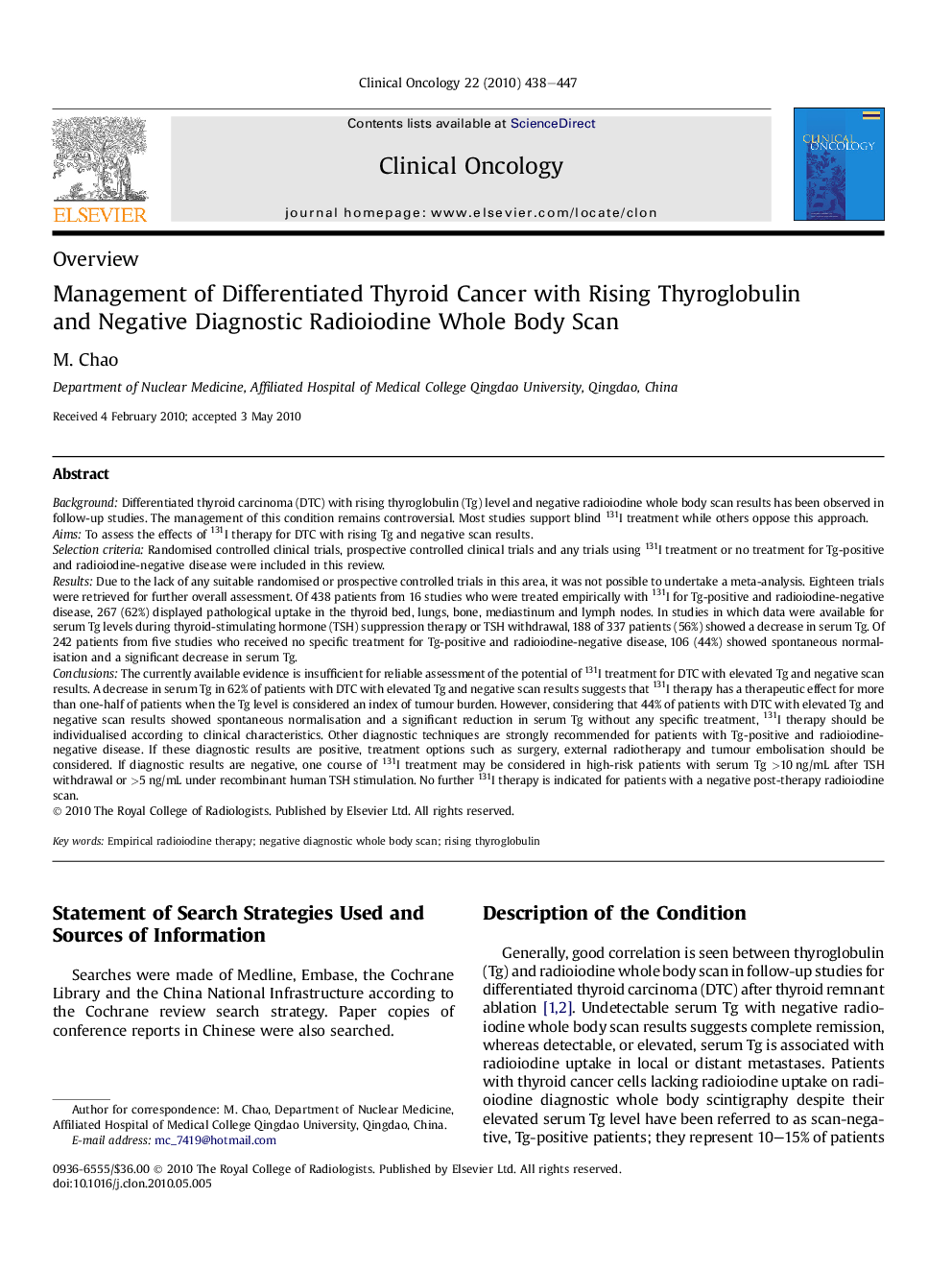| Article ID | Journal | Published Year | Pages | File Type |
|---|---|---|---|---|
| 5699337 | Clinical Oncology | 2010 | 10 Pages |
Abstract
The currently available evidence is insufficient for reliable assessment of the potential of 131I treatment for DTC with elevated Tg and negative scan results. A decrease in serum Tg in 62% of patients with DTC with elevated Tg and negative scan results suggests that 131I therapy has a therapeutic effect for more than one-half of patients when the Tg level is considered an index of tumour burden. However, considering that 44% of patients with DTC with elevated Tg and negative scan results showed spontaneous normalisation and a significant reduction in serum Tg without any specific treatment, 131I therapy should be individualised according to clinical characteristics. Other diagnostic techniques are strongly recommended for patients with Tg-positive and radioiodine-negative disease. If these diagnostic results are positive, treatment options such as surgery, external radiotherapy and tumour embolisation should be considered. If diagnostic results are negative, one course of 131I treatment may be considered in high-risk patients with serum Tg >10 ng/mL after TSH withdrawal or >5 ng/mL under recombinant human TSH stimulation. No further 131I therapy is indicated for patients with a negative post-therapy radioiodine scan.
Related Topics
Health Sciences
Medicine and Dentistry
Oncology
Authors
M. Chao,
